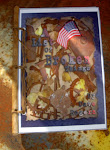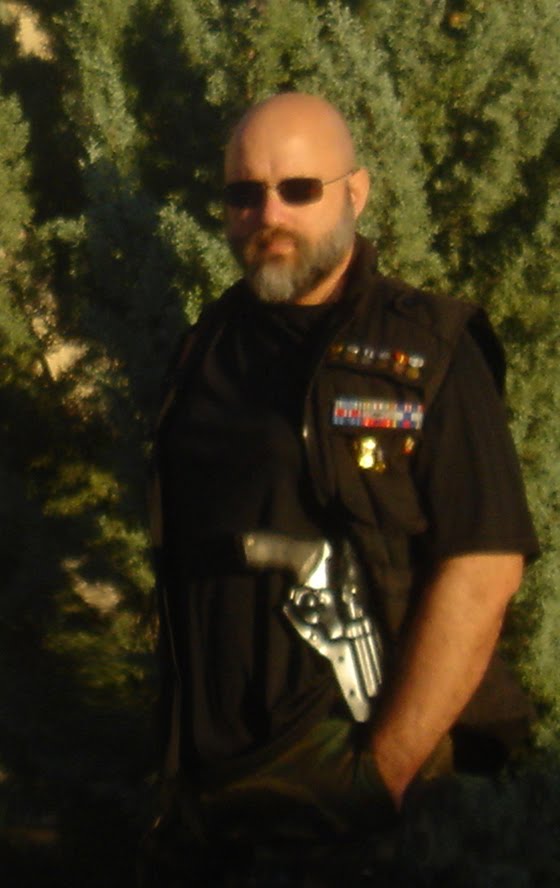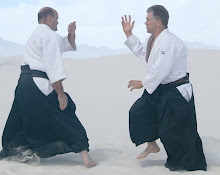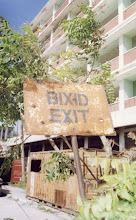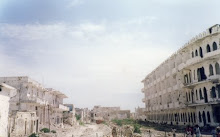I guess I have one final Christmas story for you.
It’s a tale I haven’t told much, because to tell it, I have to climb down into those dark spaces where people keep the material they would most like to avoid in their day to day lives. It’s the place in the Mind’s attic where shapes are hidden beneath ancient, dust-laden, abandoned sheets.
But the shapes are still familiar – even as you draw close. The edges of the forms beneath are sharp and cold and even in the half-light of the half remembered, they cast meaningful shadows onto the lonely floor.
I don’t like this place. The denizens of it, cavort far to merrily in my dreams, making every night a new torture. “Real rest,” they whisper “is for the dead.” They are right, of course. I have said those words before, back when I was a sergeant. I may have even said them in Africa.
Christmas Day 1992, Somalia: I was in Baidoa for a food distribution run. I remember the trucks loading up with whomever could be spared for security. It was still considered to be a lightly held area, and while food was getting through to the regular population at long last, the warlords were making problems, which had to be solved with force.
Next to our encampment were the French Royal Marines and the French Foreign Legion. I’d done a little work with them while there. They needed a specialist for some things. I had been volunteered. But that was two days ago. Today was Christmas, and I slipped onto one of the trucks, enjoying the anonymity and freedom afforded by being an Air Force NCO amongst mostly Marines and Army.
This was the cutting edge of the mission – making sure the food convoys got through and were not stolen by the thugs in the area. We bounced and banged out of the countryside on a dirt road which had, just last week, claimed the first lives when a mine took out a vehicle like this one. It was clear, but you could tell the driver was taking extra care not to stray even an inch off the long, dry brown scar which led through deep green into the city.
The city of Bones.
That’s what it had become known as, because no one could be seen on the streets. It had been seemingly deserted. Houses missing roofs, burned out structures, vehicles which may have smoldered recently, or been set to flame more than a decade ago, added a random emptiness to it all. It was a place, which had long ago accepted death as if it had washed through in a wave, taking everyone in a single, gasp of relief. It was relief from the indignity of life in that place, but also relief from the decay of malnourishment and the maddening hunger and the hallucinations of dehydration.
We stopped in a wide field and set up a perimeter. Just the security for the NGOs to operate within, our job was to hold those who were not part of the food drop, at the perimeter. Easy it seemed, because there was no one in sight – until of course, there was.
They came shuddering and jerking across the five miles of open territory between this particular god-forsaken place and the next one. And although I prayed for the people on the trucks to hurry up and offload, it wasn’t long before the first of the small group of sad humanity reached our perimeter. To my left, two Marines were keeping them back. Not hard to do, because most had given up standing. It was too difficult. They were pretty far gone.
The signal came finally to mount up and the perimeter drew in on itself, we clambered back into the trucks and took our lofty perches on the backs of those huge 925s. The Somalis that had made the trek to no avail, had turned back and dwindled away as I glanced back at them – now occluded by clouds of dust. Still, I felt relieved – a little triumphant. We had delivered 10 tons of food to the starving on Christmas Day. It felt like one of the best days I’d had in a while.
I focused again on my job, scanning buildings for threats. But in only one, did I see movement. The truck had slowed through a tighter section of town, so I had plenty of time to watch a skeleton with skin work his way unsteadily past a charred vehicle and dead tree to a dusty prayer rug in the back yard of a home. We drew abreast of him as he dropped to his knees. I describe him as male, but he may have been a she – it was impossible to tell anymore. I knew he wouldn’t be getting to his feet again – ever. I said something to the senior guy, pointing now back at the man. “Surely we can do something – leave him some food, water?”
He shook his head. Without great care in a modern hospital, the high protein content of any food we could leave him would only serve to kill him painfully. He was too far gone. He was better off meeting God on his terms now. And stopping amidst the ruins might place the convoy and the Marines at greater risk.
I wanted to scream, “stop the truck!” I wanted to set up a perimeter and get in that yard and evacuate that man if necessary. I wanted to do anything but keep on rolling away. The dying man never looked up and I don’t know if he even could have. I don’t know if he wasn’t already floating on the winds of that other place, looking down on us from impossible heights – perhaps sad that he couldn’t save us, as well.
I, who was a nobody – from a totally different kind of world, had flown halfway around the globe as part of the greatest expeditionary force the world had ever seen. In one more week we would have accomplished our mission – to restore the food convoys to the starving people of Somalia – to Restore Hope. And in that, we were successful.
But we would leave that country a long time from then, for very different reasons, and despite our successes there, the world would now view the operation as something to be ashamed of. We who were there would be forgotten – or if the subject came up in polite conversation, meet a shaking of head, a guilty glance quickly sliding away.
For me that shame is at least partly to do with that Christmas Day – and the single, lonely, man who seemed as much made from solid, pointed pieces of despair, as he was the bones and swollen joints and pendulous skull. He died there in the City of Bones, be it that day or the next. But he was certainly dead. No one left to care for him. No one left to even accomplish the burial. No one left to even know his name.
We couldn’t save him.
On such a holy day, in such a forlorn place, we faced a darkness I cannot adequately describe. It was pure anarchy, but it was more than that – it was self-destruction, but it was more than that, too. There was evil dragging it’s fierce claws across the stonework left still standing. It was palpable – tangible. The place reeked of more than death and tasted of more than blood. We brought food to the starving, but not all of them.
I struggle with this one, because there is no answer. But these struggles continue and I see that prayer rug over and over again. I keep it in the attic spaces of my mind. The bent and broken charcoal shape which kneels on it has lost none of its’ horror. I try to live better days. I try to help people where I can. I try always to be a better man because of it.
Perhaps God someday will answer my question “why.” Or, maybe my Somali friend will come down from heaven and be the first to greet me or judge me when I too leave this place. I would welcome that. I would like to think that we will smile and I will shake his hand finally, and he will be whole and well. And we will know each other’s language in that place where all things are known, and he will tell me of his life, his loves, his children and grandchildren and we will laugh. We will laugh at his stories, at the improbable perfection of the place in which we find ourselves. We will laugh at our silly mortal beliefs and misperceptions now fading and almost forgotten. We will cry together over our failings and we will talk of the subjects which once seemed so hard.
And I will finally be able to tell him I’m sorry.
- Dave




